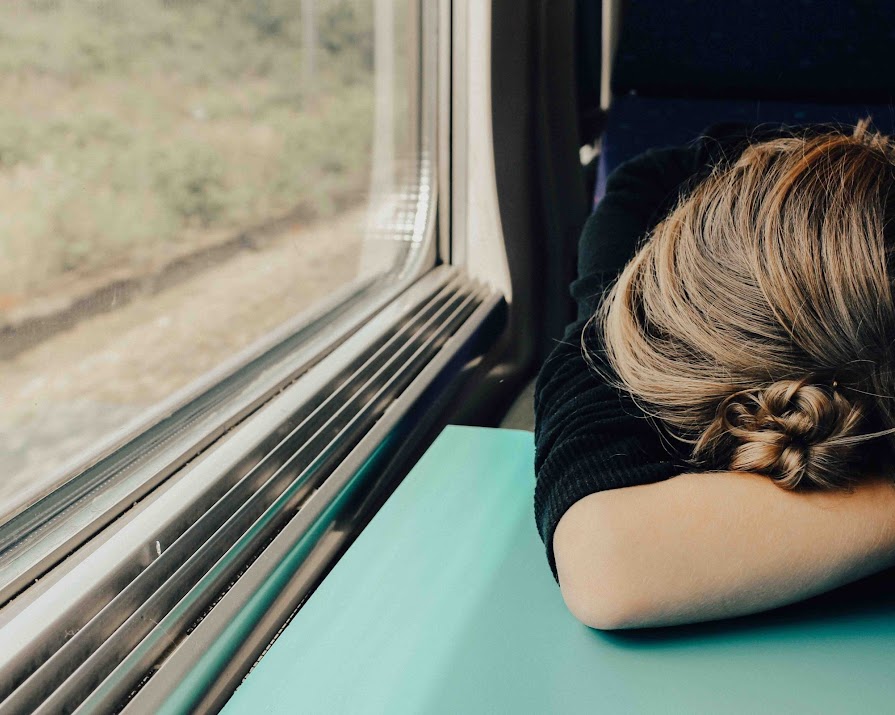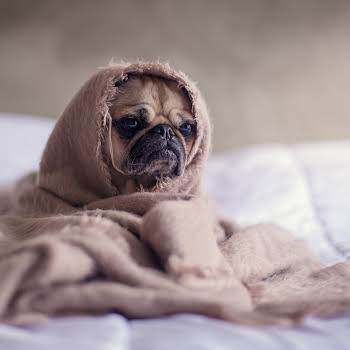
Are you feeling more tired than usual? Well, lockdown exhaustion is a thing
By Edaein OConnell
11th Jun 2020
11th Jun 2020
Have you been feeling more tired during lockdown and can’t explain why? Well, lockdown exhaustion is an actual thing
I thought I knew what it was to be groggy and exhausted.
Come Wednesday of every working week, my muscles were sore and voice only a croaky whisper. My legs were heavy without fail and the freshness of a Monday was fully depleted by that Friday.
However, then we were put in lockdown. Covid-19 became a part of all our lives whether we contracted it or not.
In the beginning, I felt rejuvenated. Reality had not set in and this new world of working from home was unfamiliar and exciting. Yet around mid-April, the shine of this new toy we didn’t ask Santa for began to dim. It was less polished and my inward thoughts and outward appearance reflected it.
I was exhausted.
Then I felt guilty for being tired. There were no kids to feed between Zoom meetings and the only real daily stress I encountered was when my rural internet decided to take an unauthorised lunch break.
But, I can’t shake the feeling. Speaking to colleagues and friends, it seems I am not alone.
And taking a ride on the rollercoaster that is the internet shows me that it is an actual thing being experienced by people all over the world.
I am awake and working at 4am. This lockdown has ruined my sleep cycle completely. Even when I do sleep, I wake up tired and groggy
— Yes please? (@peeleraja) April 5, 2020
Sleep inertia
Sleep inertia is the medical term for grogginess. It is the heavy feeling you experience after waking up and can cause feelings of drowsiness, disorientation, and a decline in motor dexterity. This feeling can be caused by not getting enough sleep or waking up during a ‘deep’ part of the sleep cycle.
Deep sleep reduces over the course of the night and usually happens early in the cycle. This is why when you wake from a short nap grogginess is particularly bad.
Although, this doesn’t explain why this feeling is worse during lockdown. In a journal article for The Journal of Sleep Research, Professor Colin Espie outlined why sleep inertia is affecting us more right now.
We are exercising less because of restricted opportunities to leave the house while trying to balance work and life responsibilities. This may lead to an increase in body weight. He says: “In the context of disruption to daily routines kept in schedule by work and school times, the combination of these factors may lead to sleep difficulties as well as other health risks.”
He also explains that we are being exposed to less direct sunlight because of restrictions and this has a negative effect on our sleeping habits. Speaking to the Independent he elaborated: “External light is hundreds of thousands of lux [the intensity of light hitting a surface]. Even bright light indoors is probably only a few hundred… Our eyes adjust so we don’t necessarily realise how dark it is compared to outside. So I think that’s a major part of it.”
Anxiety
Clinical psychologist Dr Emma Hepburn posted on Instagram about lockdown exhaustion in April. In the post, she talked about this feeling of unexplainable tiredness and how it is connected to the events around us.
View this post on Instagram
She wrote: “The answer may be that in the current situation your brain is expertly detecting all that extra threat and predicting you need more energy to manage it, which means your body is guzzling up extra energy to help you get ready to respond.”
She explained our bodies are getting ready for danger and this chemical reaction directs more blood to your legs and muscles and gets your heart to beat faster. And this uses a lot of energy very quickly.
“It guzzles up your petrol at the rate of a car in the 80s. Your brain is responsible for regulating your energy use and at times of high threat it’s shouting ‘alert alert, more gas now’. Currently, there’s a greater level of threat generally, there’s real risk out there that we have to be alert to. There’s also lots of change and new tasks, which your brain requires more energy to deal with.”
Pair this with working from home, homeschooling, and trying to plan for the future and you have a draining mix.
Dr Hepburn continues: “Stress and high demand multitasking, or even loneliness and boredom (which can be stressful) uses even more. And before you know it, much more quickly than normally, you have a depleted tank. You are exhausted.”
To combat this she advises to be more aware of the ’empty tank’ and refuel by relaxing, resting, laughing and prioritising you.
Read more: Hairdressers will open on June 29 – here’s what we know so far
Read more: ‘It’s associated with shame’: How can we stop feeling so lonely?
Read more: 6 of the best online summer camps for kids and teenagers























